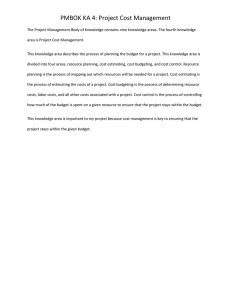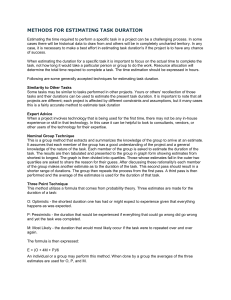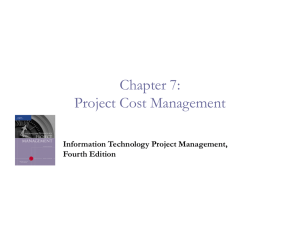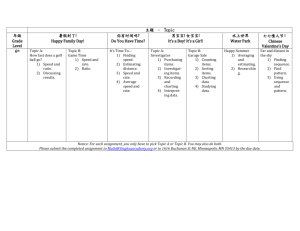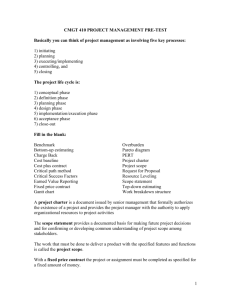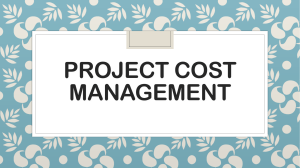Review Project Cost Management (PMBOK KA-4)
advertisement
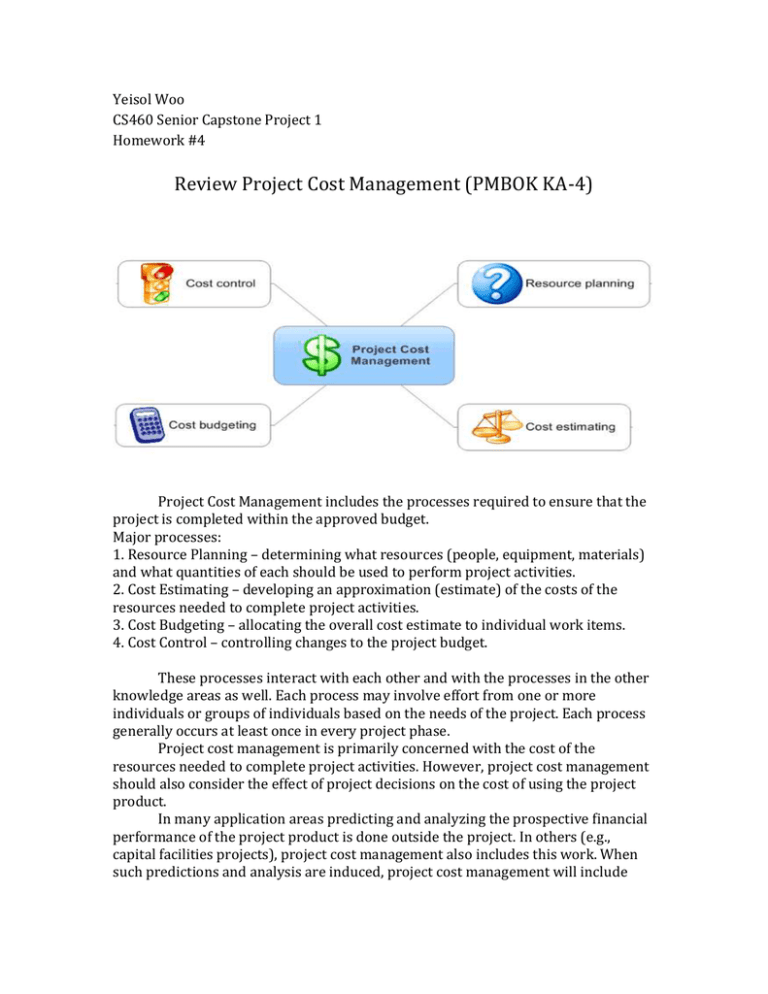
Yeisol Woo CS460 Senior Capstone Project 1 Homework #4 Review Project Cost Management (PMBOK KA-4) Project Cost Management includes the processes required to ensure that the project is completed within the approved budget. Major processes: 1. Resource Planning – determining what resources (people, equipment, materials) and what quantities of each should be used to perform project activities. 2. Cost Estimating – developing an approximation (estimate) of the costs of the resources needed to complete project activities. 3. Cost Budgeting – allocating the overall cost estimate to individual work items. 4. Cost Control – controlling changes to the project budget. These processes interact with each other and with the processes in the other knowledge areas as well. Each process may involve effort from one or more individuals or groups of individuals based on the needs of the project. Each process generally occurs at least once in every project phase. Project cost management is primarily concerned with the cost of the resources needed to complete project activities. However, project cost management should also consider the effect of project decisions on the cost of using the project product. In many application areas predicting and analyzing the prospective financial performance of the project product is done outside the project. In others (e.g., capital facilities projects), project cost management also includes this work. When such predictions and analysis are induced, project cost management will include additional processes and numerous general management techniques such as return on investment, discounted cash flow, payback analysis, and others. Project cost management should consider the information needs of the project stakeholders- different stakeholders might measure project costs in different ways and at different times. When project costs are used as a component of a reward and recognition system, controllable and uncontrollable costs should be estimated and budgeted separately to ensure that rewards reflect actual performance. Resource Planning Resource planning involves determining what physical resources (people, equipment, materials) and what quantities of each should be used to perform project activities. It must be closely coordinated with cost estimating. Cost Estimating Cost estimating involves developing an approximation (estimate) of the costs of the resources needed to complete project activities. When a project is performed under contract, care should be taken to distinguish cost estimating from pricing. Cost estimating involves developing an assessment of the likely measureable result. Pricing is business decision that uses the cost estimate as but one consideration of many. Cost estimating includes identifying and considering various costing alternatives. The cost estimating process must consider whether the cost of the additional design work will offset the expected savings. Cost Budgeting Cost budgeting involves allocating the overall cost estimates to individual work items in order to establish a cost baseline for measuring project performance. Cost Control Cost control is concerned with influencing the factors which create changes to the cost baseline to ensure that changes are beneficial, determining that the cost baseline has changed, and managing the actual changes when and as they occur. Cost control includes: 1) Monitoring cost performance to detect variances from plan. 2) Ensuring that all appropriate changes are recorded accurately in the cost baseline. 3) Preventing incorrect, inappropriate, or unauthorized changes from being included in the cost baseline. 4) Informing appropriate stakeholders of authorized changes.
